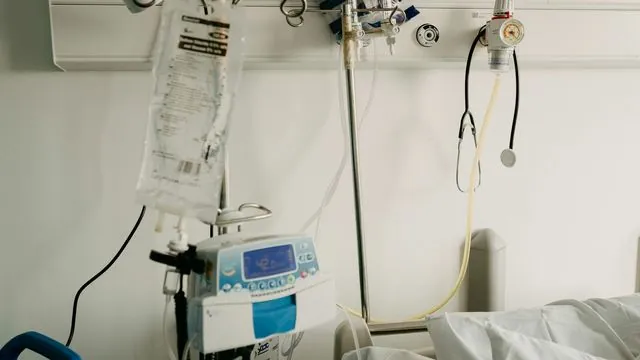
Breakthrough in Breast Cancer Treatment: New Drug Nearly Doubles Cure Rate!
2025-01-29
Author: Yu
Introduction
A pioneering international clinical trial led by Peter Mac has unveiled a groundbreaking advancement in the fight against the most prevalent form of breast cancer. By incorporating an immunotherapy drug alongside traditional chemotherapy before surgery, researchers have observed a remarkable increase in the breast cancer cure rate.
Trial Overview
The Phase III CheckMate-7FL trial involved a diverse group of 510 participants diagnosed with the "ER+/HER2-" subtype, which constitutes approximately 70% of all breast cancer cases. These patients are typically given chemotherapy to shrink their tumors, facilitating surgical removal.
Nivolumab and Study Results
In this trial, researchers introduced nivolumab, an innovative immunotherapy medication, to the pre-surgery regimen, comparing its effects with those of a placebo. The results, published in the esteemed journal *Nature Medicine*, are poised to transform treatment protocols for this prevalent breast cancer subtype.
Professor Sherene Loi, who spearheaded the trial, shared that the addition of nivolumab led to nearly double the number of patients achieving the optimal outcome known as pathological complete response (pCR). "These patients are considered likely cured, as tests indicate no detectable cancer cells in both the tumor and the lymph nodes removed during surgery," Prof. Loi elaborated.
Results and Implications
The trial's outcomes revealed that the pCR rates soared to 25% among participants treated with nivolumab, compared to just 14% in those receiving the placebo. Notably, in a subgroup of patients whose tumors possessed the "PD-L1" biomarker, indicating higher sensitivity to nivolumab, the pCR rate surged to an impressive 44% in the nivolumab group, contrasting with just 20% in the placebo cohort.
The PD-L1 protein is known for inhibiting immune cells' ability to combat cancer. Nivolumab counteracts this by blocking the receptor that allows PD-L1 to attach to immune cells, thereby enhancing their anti-cancer effects.
Safety and Considerations
While no significant safety concerns were identified in the trial, there were five deaths reported in the nivolumab treatment group, with two linked to toxicity from the drug. In contrast, the placebo group reported no fatalities.
Conclusion
The ER+/HER2- breast cancer subtype accounted for around 70% of approximately 2.3 million breast cancer diagnoses worldwide in 2020. Prof. Loi notes that although these patients typically have better outcomes than those with other breast cancer forms, variations exist. Notably, a more aggressive variant of ER+/HER2- breast cancer frequently affects younger women and has a higher risk of recurrence.
"It appears that these younger patients may respond more effectively to both immunotherapy and chemotherapy," she added.
This notable advancement in breast cancer treatment offers hope to countless patients globally, highlighting the potential of immunotherapy in revolutionizing cancer care. As more research is conducted, the integration of such treatments may herald a new era in the battle against breast cancer.


 Brasil (PT)
Brasil (PT)
 Canada (EN)
Canada (EN)
 Chile (ES)
Chile (ES)
 Česko (CS)
Česko (CS)
 대한민국 (KO)
대한민국 (KO)
 España (ES)
España (ES)
 France (FR)
France (FR)
 Hong Kong (EN)
Hong Kong (EN)
 Italia (IT)
Italia (IT)
 日本 (JA)
日本 (JA)
 Magyarország (HU)
Magyarország (HU)
 Norge (NO)
Norge (NO)
 Polska (PL)
Polska (PL)
 Schweiz (DE)
Schweiz (DE)
 Singapore (EN)
Singapore (EN)
 Sverige (SV)
Sverige (SV)
 Suomi (FI)
Suomi (FI)
 Türkiye (TR)
Türkiye (TR)